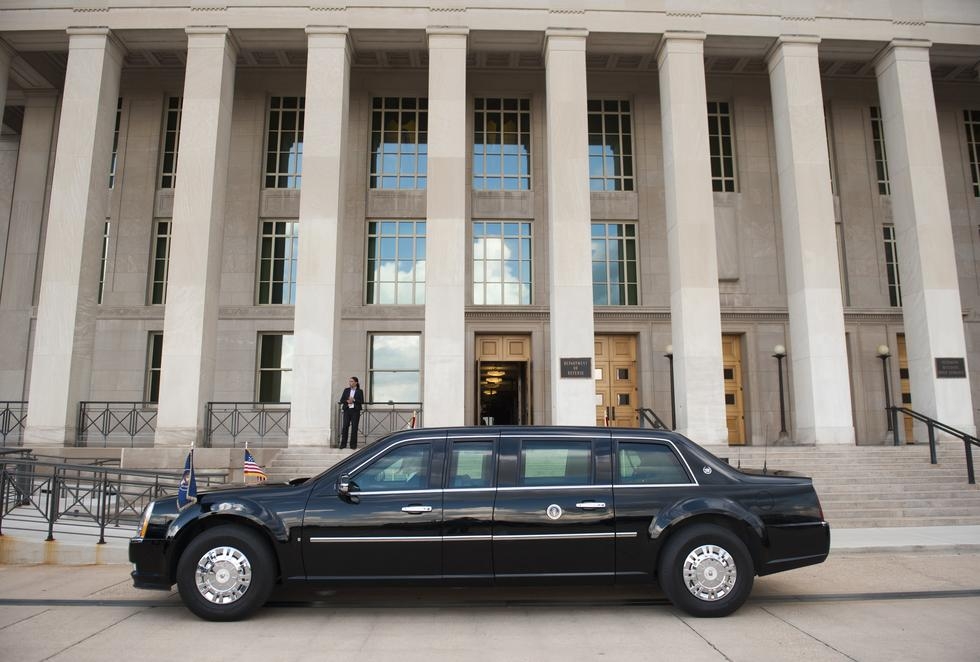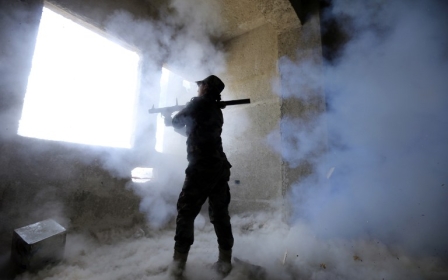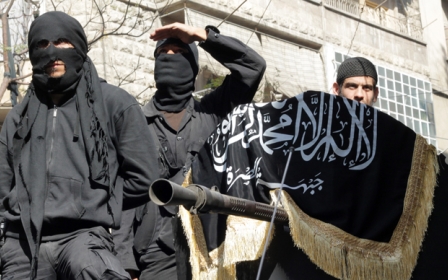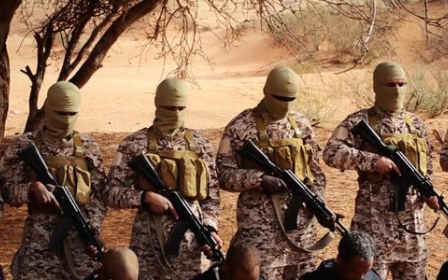Washington does not know location of US-trained rebels: Officials

The Pentagon has said that it does not know the location of its recently deployed New Syrian Forces, despite pledging this week to support them if they come under attack.
Pentagon spokesperson Captain Mark Davis told reporters at a press briefing on Thursday that the Syrian rebels do not “fall under our chain of command,” and as such the Pentagon is reliant upon groups it works with to know their status.
A total of 54 Syrian opposition fighters entered the country earlier this month after completing a training programme at the beginning of July.
Shortly after the fighters were deployed they came under attack from al-Nusra Front.
The militants, who have links to al-Qaeda, captured a number of the US-trained rebels in late July, despite reports that the two groups had been attending joint co-ordination meetings just days earlier.
The US then carried out airstrikes in defence of the New Syrian Forces (NSF), killing up to 18 members of al-Nusra Front.
In response, the militants attacked a military headquarters used by the NSF, claiming to kill five fighters and calling on the group to “return to the right path” of focusing attacks against forces loyal to President Assad, rather than Islamic State.
“Clearly there have been challenges. Some of those challenges, as you know, have come from al-Nusra Front,” said Davis.
“But overall we remain committed to ensuring that we have a group there that we can train and equip; moderate Syrian opposition who can continue to fight against ISIL on the ground as part of a broader strategy to defeat ISIL across the region.”
Despite previously refusing to confirm that the NSF was coming under fire due to its links with Washington, the Pentagon signalled a major policy shift this week when it said it would use airstrikes to defend its trainees from any attackers.
The policy could even see US forces targeting forces loyal to President Assad, in what would be a major turning-point in the protracted civil war.
However, with the admission that the Pentagon does not know the location of its trainees, it remains unclear how such strikes will be carried out.
White House spokesperson Josh Earnest said President Barack Obama has been briefed on the efforts to train and equip the Syrian fighters, and the Pentagon has been clear about the obstacles presented by the mission.
“The president certainly does have the expectation that the United States and our coalition partners learn from the significant challenges that we have encountered in trying to train, equip and empower the Syrian opposition fighters on the ground in Syria,” Earnest said.
“But it has not significantly encumbered the other aspects of our strategy that are yielding important results in northern Syria,” he added, referring to efforts to defend Kobane and the use of airstrikes to protect successive advances against Islamic State along the northern Syria border.
Previous US attempts to train certain factions of the Syrian opposition have also run aground.
In March Harakat Hazm, one of the first groups to receive US funding, announced that it was disbanding after suffering a punishing defeat at the hands of al-Nusra Front.
Stay informed with MEE's newsletters
Sign up to get the latest alerts, insights and analysis, starting with Turkey Unpacked
Middle East Eye delivers independent and unrivalled coverage and analysis of the Middle East, North Africa and beyond. To learn more about republishing this content and the associated fees, please fill out this form. More about MEE can be found here.





